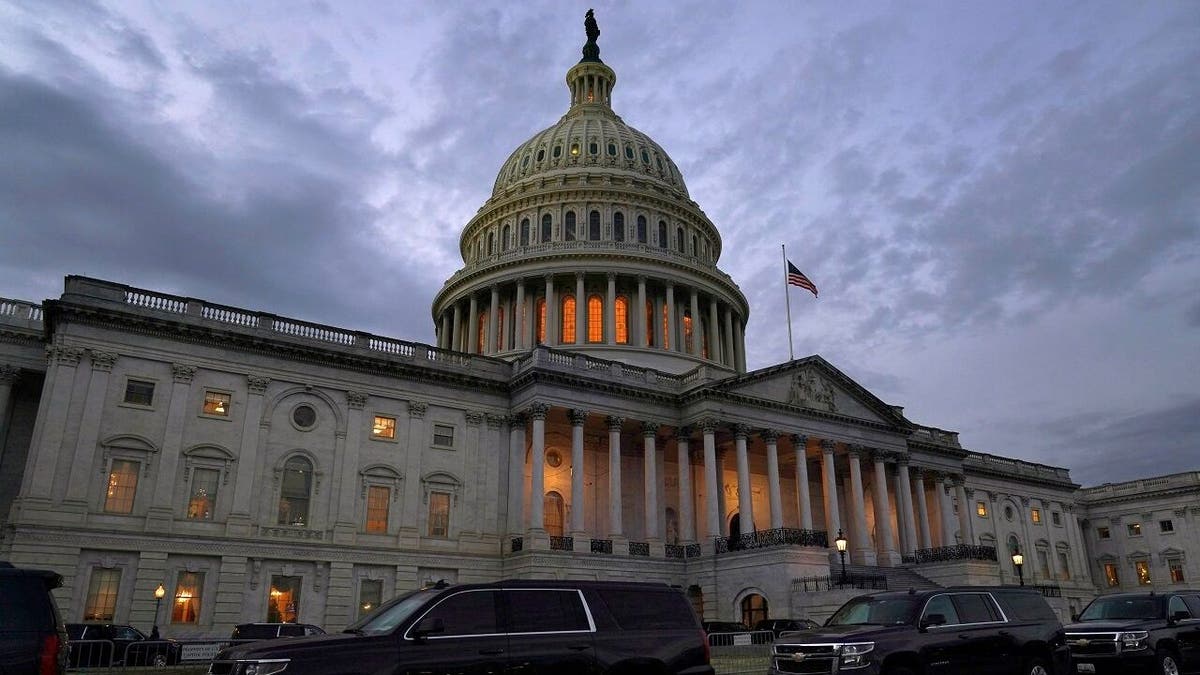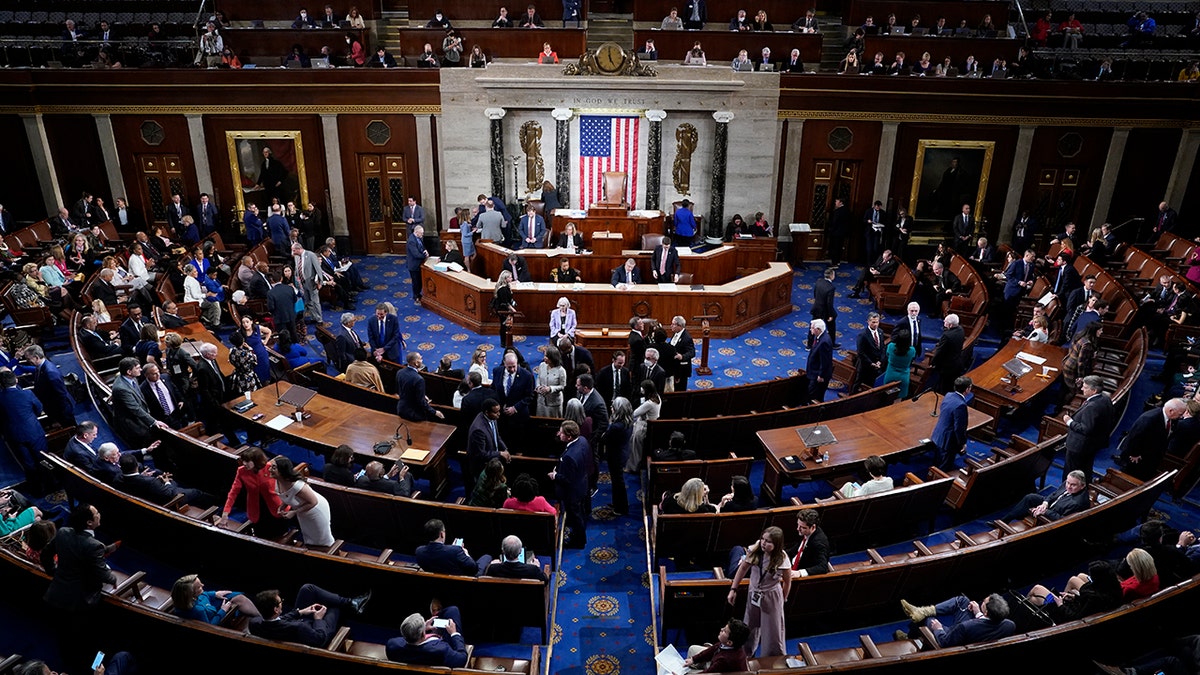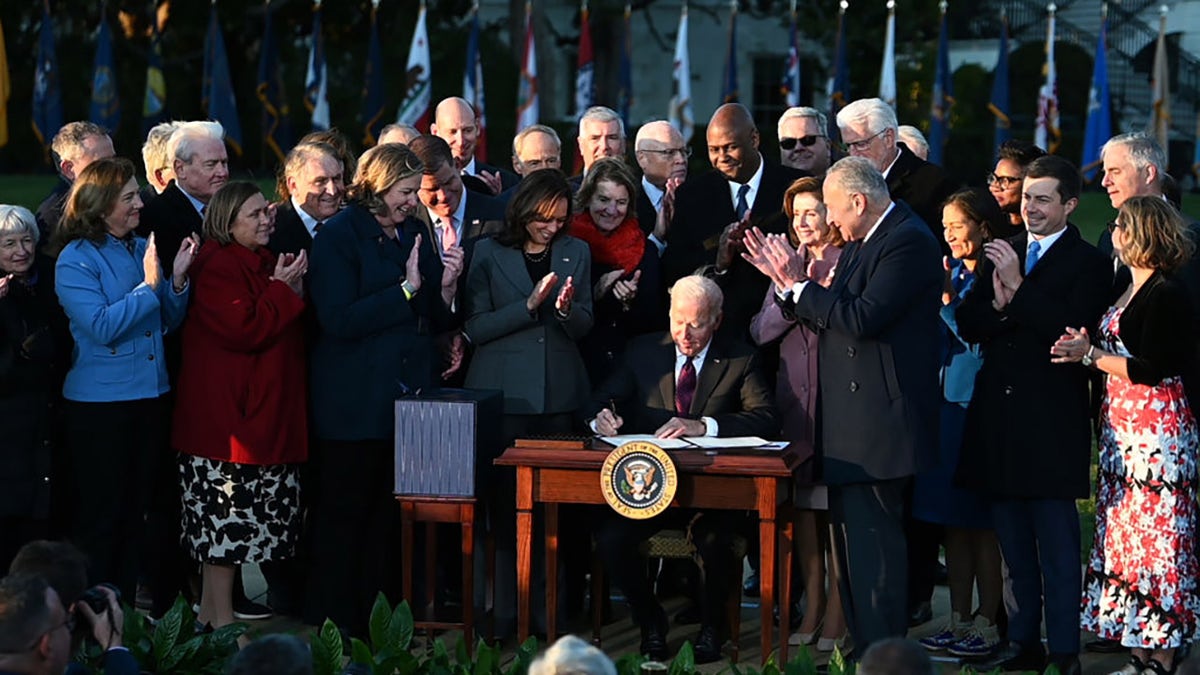Mike Pence: We must end unnecessary spending
Former Vice President Mike Pence breaks down his policy agenda on 'America Reports.'
Trust is the cornerstone of our republic democracy.
Whether it be the delicate social contract embodied in our Constitution or the transactions that we engage in every day – trust is the fabric that ties it all together.
The debate over the relationship between government and the governed is not new. From the Old Testament to the age of Greek philosophy, from the New Testament to the Middle Ages – history is replete with tyrannical, obtrusive and inept examples of government at the expense of everyday citizens.

The U.S. Government Accountability office recently concluded that more than $2.4 trillion worth of avoidable errors have been rendered over the last 20 years. (AP Photo/Jacquelyn Martin)
Tellingly, only 19% of Americans have faith that federal officials will do the right thing "most of the time," while confidence in local and state officials is substantially higher at 66% and 57%, respectively. Despite a recent uptick in voting participation, a recent study shows the U.S. ranks 31st out of 50 surveyed democracies.
BIDEN SIGNS DEBT CEILING BILL, AVOIDING GOVERNMENT DEFAULT
A big part of the disconnect between the government and the citizens it was created to serve stems from the lack of responsibility and sense of urgency in better stewardship over public funds. The U.S. Government Accountability office recently concluded that more than $2.4 trillion – that’s trillion with a "t" – worth of avoidable errors have been rendered over the last 20 years.
The nonpartisan Congressional Budget Office recently noted that Congress has failed to reauthorize 1,118 appropriations that expired before the beginning of fiscal year 2022, while still spending $461 billion this year on programs that have expired authorizations. Sadly, $203 billion has been appropriated for programs that expired over a decade ago.

The Congressional Budget Office said Congress failed to reauthorize 1,118 appropriations that expired before the beginning of fiscal year 2022, while still spending $461 billion this year on programs that have expired authorizations. (Jabin Botsford/The Washington Post via Getty Images)
Additionally, our nation’s complex and byzantine regulations sideline badly needed public and private projects across a wide swath of industries and functions of the economy. We know intuitively that America is falling further behind in critical infrastructure development to the point where we ask, "Could we even build the Hoover Dam again?"
And the statistics belie the truth when it comes to unnecessary delays to key projects, whether it be in transportation or in the energy sector. An example that underscores the point is that a recent analysis showed that Dodd-Frank, a financial services law, accounted for nearly 30,000 new regulatory restrictions requiring compliance from business – more than all other laws passed during the Obama administration combined. Even one of the authors later admitted that "no one will know until this is actually in place how it works."
Finally, as our nation’s leaders deliberate in the coming weeks over how to reconcile our profligate spending, more Americans lack faith that Congress and the president can rein in runaway spending to support a bloated federal bureaucracy far in excess of the nation’s needs.
Credit rating agencies agree with Americans in recent downgrades of the credit worthiness of our U.S. government’s ability to reduce annual deficits and contain overall debt growth. A recent survey indicates that over eight in 10 Americans believe that both Congress and the president should prioritize this unsustainable liability we are imposing on future generations of citizens.
CLICK HERE TO GET THE OPINION NEWSLETTER
The undeniable truth is that close to half of all of our spending is related to Social Security, Medicare and Medicaid. Without a substantive discussion on reforming these programs, we won’t ever get close to the goal of reining in escalating costs of maintaining government – namely the interest payments on servicing debt, which is projected to exceed national defense spending by 2028.
The question we citizens have to ask ourselves is whether our very own government is getting in the way of our prosperity?

President Joe Biden signs the Infrastructure Investment and Jobs Act at the White House on Nov. 15, 2021. (Chen Mengtong/China News Service via Getty Images)
We must remind our fellow Americans of our unassailable rights to scrutinize, demand and expect efficient and effective government. We need more courage from candidates and elected officials to fearlessly champion new approaches to reduce the size and scope of government and reform bureaucracies that make America less competitive.
CLICK HERE TO GET THE FOX NEWS APP
As citizens, we have a responsibility to reject the notion that government should be left untouched and somehow expect positive outcomes.
If we are serious about our love for our nation, we must be serious about making sure that those charged with overseeing its fiscal affairs do the right things. Government of the people, by the people, for the people can only happen with the input and oversight of us all.


